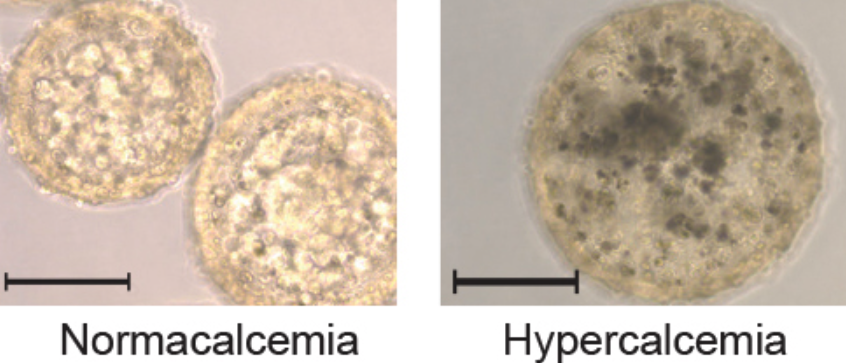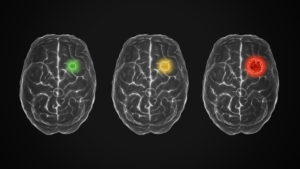
A bioengineered tattoo monitors blood calcium levels
Swiss researchers have created a biomedical tattoo that becomes visible on the skin of mice in response to elevated levels of calcium in the blood.
The tattoo represents an innovative diagnostic strategy that may eventually allow for earlier detection of disorders associated with high blood calcium levels (or hypercalcemia). Researchers have long acknowledged the need to create more proactive measures to prevent diseases, such as raising awareness and encouraging regular medical checkups.
Developing new diagnostic devices is a critical component of this effort, as catching diseases in the earliest possible stage usually improves clinical outcomes. Seeking to address this unmet need, synbio expert Martin Fussenegger and colleagues at ETH Zurich in Basel designed an implantable sensor that detects hypercalcemia, which is an early marker of various conditions ranging from kidney failure to several forms of cancer. They engineered cells that contained a calcium-sensing receptor to monitor the concentration of calcium in the blood. The cells were also designed to produce melanin (a dark pigment) upon detection of persistently higher-than-average calcium concentrations, appearing on the skin as a dark patch.
The authors tested their technology by implanting the engineered cells under the skin of mice with either cancerous tumors that cause hypercalcemia or tumors that do not affect calcium blood levels. The tattoos successfully appeared only on the skin of the hypercalcemic mice, which exhibited no symptoms during the 38-day experiment. Although the tattoo is still in the early stages of development, Fussenegger and colleagues say it could eventually offer clinicians a new method to detect some cancers and other diseases before they cause symptoms.


 Unsplash+
Unsplash+
